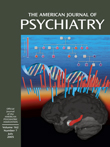Strong Inverse Association Between Height and Suicide in a Large Cohort of Swedish Men: Evidence of Early Life Origins of Suicidal Behavior?
Abstract
OBJECTIVE: Previous studies have found associations between poor fetal and infant growth and the risk of suicide. The authors’ goal was to investigate the association between height—a measure of childhood growth—and suicide risk. METHOD: The authors conducted a record linkage study of the birth, conscription, mortality, family, and census register data of 1,299,177 Swedish men followed from age 18 to a maximum of age 49. RESULTS: There were 3,075 suicides over an average follow-up period of 15 years. There was a strong inverse association between height and suicide risk. In fully adjusted models, a 5-cm increase in height was associated with a 9% decrease in suicide risk. CONCLUSIONS: The strong inverse association between height and suicide may signify the importance of childhood exposure in the etiology of adult mental disorder or reflect stigmatization or discrimination encountered by short men in their adult lives.



